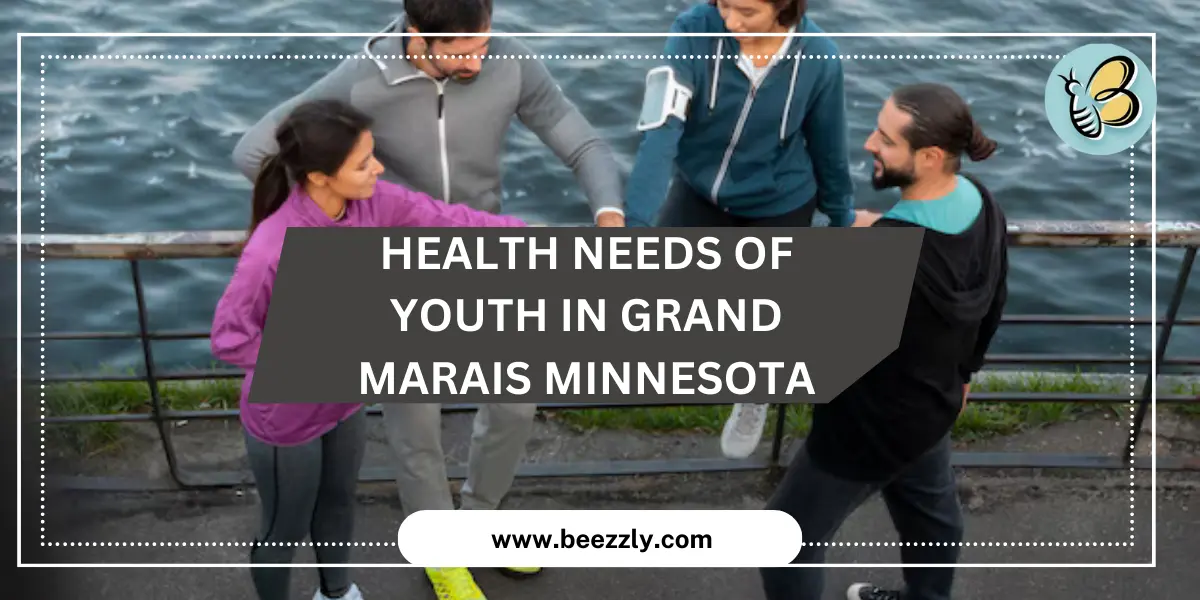Nestled along the shores of Lake Superior, Grand Marais, Minnesota, is a community bound by its natural beauty and rich cultural heritage. But for the youth growing up here, life in this picturesque rural town comes with unique health challenges. Limited healthcare access, isolation, and barriers to mental health support and nutritious foods are just some of the obstacles facing young people in Cook County. Addressing these needs is essential for a vibrant, healthy future in Grand Marais. Let’s explore the health challenges faced by youth here and ways to help them lead healthier, happier lives.
Geographic Challenges and Access to Healthcare
While the peacefulness and close-knit nature of Grand Marais appeal to many, living in a remote area poses serious barriers to healthcare. Youth in rural communities like Grand Marais often face lengthy travel times to reach essential health services, making routine and emergency care less accessible. With only a handful of healthcare providers in the region, young people may experience extended wait times and limited availability of specialized medical care, particularly for mental health and specialized treatments.
For those without reliable transportation, reaching medical facilities becomes even harder. This lack of access means that youth injuries from sports, outdoor activities, or mental health needs may go untreated for extended periods. In the long term, this limited healthcare access can exacerbate chronic conditions, making it critical to address these challenges to ensure that young people receive the timely care they need.
Physical Health Needs: Primary Care, Nutrition, and Fitness
Limited Primary Care Services
Primary care is the foundation of good health, but for many youth in Grand Marais, access to these services can be limited. With fewer medical providers than urban areas, routine check-ups, preventive screenings, and vaccinations may be delayed or require travel to neighboring towns. Without these regular assessments, health conditions like diabetes or hypertension may go undetected until they become severe.
Nutrition and Fitness Challenges
Nationally, nearly 20% of children and teens are considered obese, and the rates of physical inactivity and poor nutrition are concerning. In Grand Marais, economic limitations and fewer facilities mean that many youth struggle to access the resources they need to stay fit and eat well. Local food options often consist of processed foods due to the area’s “food desert” status, where affordable, fresh produce is scarce. This scarcity can lead to unhealthy eating habits, contributing to obesity and nutritional deficiencies.
Additionally, while Grand Marais offers stunning outdoor spaces, not all youth have access to organized sports or fitness programs. Some may lack the equipment, transportation, or support to participate fully, limiting their options for staying active.
Mental Health Needs: Breaking Down Barriers
Mental health issues among youth in Grand Marais mirror a national trend, with about 20% of adolescents experiencing conditions like anxiety, depression, or ADHD. However, in rural communities, these challenges are intensified by isolation, social stigma, and limited mental health resources. The lack of mental health professionals in Grand Marais means that young people may have difficulty accessing timely support, which is especially crucial in preventing crises.
Furthermore, the pressure of social media, academic expectations, and peer dynamics can weigh heavily on youth. Addressing these mental health challenges requires not only increasing access to resources but also creating a community where youth feel comfortable seeking support without stigma.
Sexual Health and Substance Use Awareness
Sexual Health Education
With limited access to comprehensive sexual education, many rural youth face knowledge gaps regarding safe sexual practices. This lack of information can lead to increased risks of sexually transmitted infections (STIs) among teens. To address this, Grand Marais must prioritize education that is accurate, non-judgmental, and accessible. Schools and community programs play an essential role in equipping youth with knowledge to make informed choices.
Substance Abuse Risks
Substance abuse is another growing concern, with approximately 29% of high school students in the area reporting alcohol use, and around 22% experimenting with other substances. This trend often ties back to untreated mental health issues, boredom, and limited recreational outlets. Effective intervention requires both mental health support and preventive education to help young people understand the risks and develop healthier coping mechanisms.
Strategies for Improvement: Building a Healthier Grand Marais for Our Youth

1. Community Health Education Initiatives
Regular workshops and community events on nutrition, physical health, and substance abuse can be game-changers for youth in Grand Marais. By integrating environmental education into the curriculum and organizing hands-on ecological activities, young people can develop a stronger sense of responsibility for their well-being and that of the community.
2. Enhanced Physical Activity Opportunities
Offering a variety of sports and recreational activities, from organized sports leagues to outdoor adventure days, can encourage youth to engage in physical fitness. Events like fun runs, bike rides, and hiking days not only promote physical health but also create community bonds and promote an active lifestyle.
3. Accessible Mental Health Support Programs
Establishing accessible counseling, youth support groups, and peer mentorship programs can make a significant impact. When youth have safe spaces to discuss mental health, they’re more likely to reach out for help. Peer mentorship, in particular, helps build community among young people, fostering mutual support and reducing isolation.
4. Nutrition and Food Access Programs
Teaching young people about nutrition through cooking classes, community garden projects, and food production education can empower them to make healthier choices. Initiatives like community gardens help address food desert issues, providing fresh produce and encouraging healthier eating habits.
5. Expanding Healthcare Access
Introducing mobile health clinics in Grand Marais can bring critical health services closer to home, offering basic screenings, vaccinations, and check-ups that make a real difference in youth health outcomes. Mobile clinics reduce travel burdens and ensure that preventive care reaches the youth who need it most.
6. Technology for Health and Family Involvement
Health and wellness apps can encourage healthier habits by providing youth with tools to track physical activity, nutrition, and mental wellness. Online platforms that allow for anonymous health discussions create a safe space for young people to seek guidance. Additionally, family-focused health events can reinforce wellness habits at home, creating a supportive environment for youth to thrive.
Final thoughts
Improving youth health in Grand Marais requires a dedicated and collaborative approach. By addressing physical, mental, and social health challenges, the community can foster an environment where young people have the support and resources they need. Investing in programs that promote active lifestyles, provide mental health support, enhance access to nutritious food, and increase healthcare access is an investment in the entire community’s future. When we listen to the voices of young people and adapt our strategies to meet their needs, we create a stronger, healthier generation ready to lead Grand Marais forward.
Our commitment to youth health today is the foundation of a thriving Grand Marais tomorrow. By working together, we can build a brighter, healthier future for our community’s youth and empower them to meet whatever challenges the future holds.
